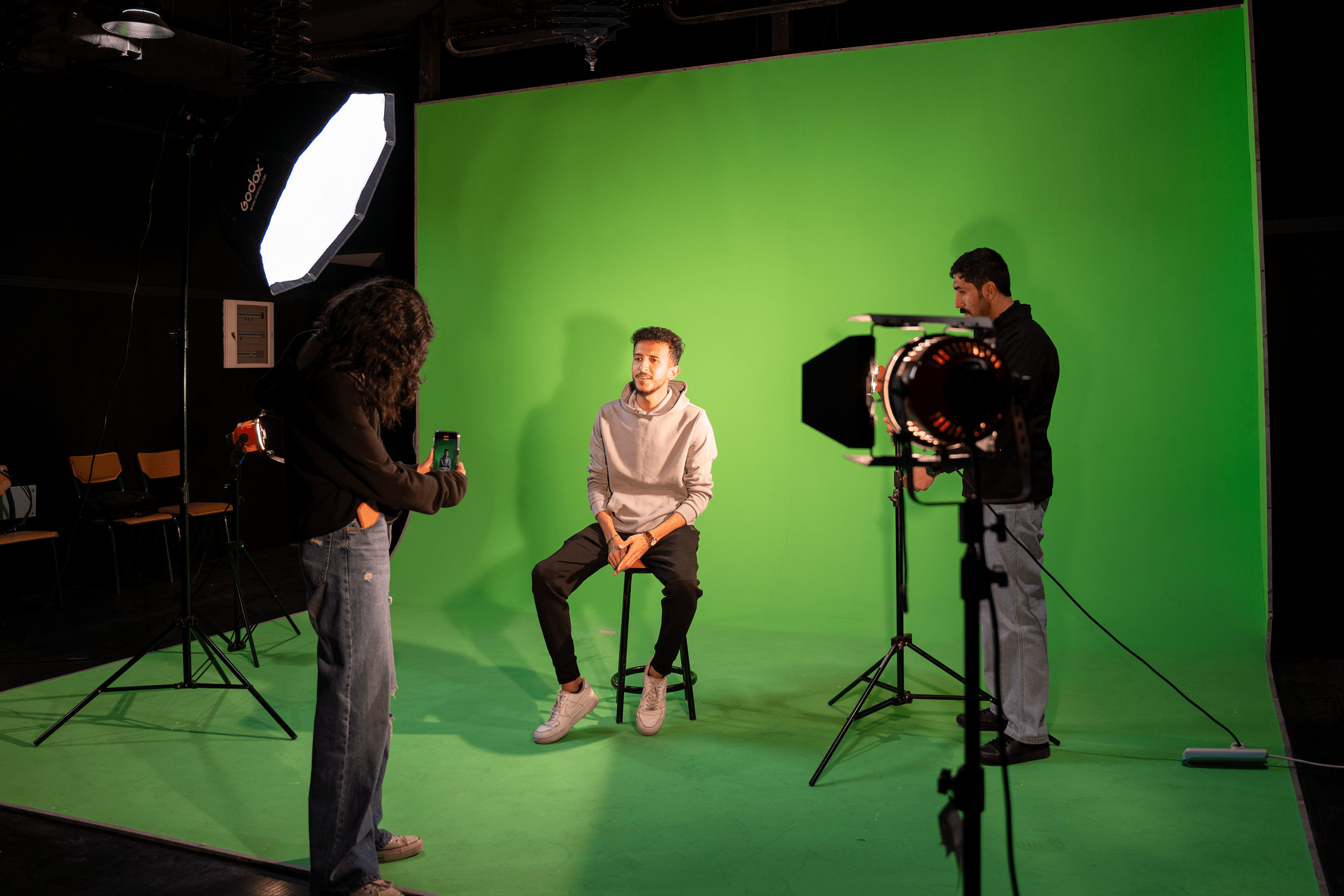Al-Ahliyya Amman University
Program Description
Design of Cinema TV and Theatre
Bachelor
The Cinema, Television and Theater Design program offers a unique chance for students to develop their creative and academic skills and prepares them to become designers and creators of artistic visual content. This is based on a study plan that keeps pace with the rapid transformations in the fields of study. The program adopts modern educational methods that apply quality standards of teaching, learning and applied scientific research.
The academic program provides students with two specialization tracks:
Track A – Cinema and Television: This track offers courses that qualify students to specialize in the field of cinema and television artistic content production.
Track B – Theater and Acting: This track offers courses that prepare students for the art of acting and theatrical work.
Design of Cinema TV and Theatre
Number Of Credit Hours
135

Faculty of Architecture and Design
Admission Requirements
Admission requirements of the Bachelor degree in the Design of Cinema TV and Theatre program include a High School Certificate or equivalent in the following:
60%
- Scientific
- Scientific - Medical Field
- Scientific - Engineering Field
- Scientific - Pure Sciences Field
- Literary
- Comprehensive Health Education
- Informatics Administration
- Sharia
Job Opportunities

- Scenery design in the fields of film and television drama.
- Theatrical scenography design.
- Editing, Cinematography, Scriptwriting, and directing.
- Technical production.
- TV and satellite channels.
- Cultural fields.
- Ccademic field.
Study Plans and Program Files
Educational Objectives

Learning Outcomes at Program Level (PLO's):
- Research skills
- Criticism skills
- Analytical skills
- Analytical, design and installation skills
- Communication, evaluation and presentation skills
- Applied technical skills
- Applied environmental skills
- Sustainable applied skills
- Management and leadership skills
- Skills of managing operational and marketing costs
- Legal responsibility
- Professional and ethical provisions

Learning Outcomes at the Level of Specialization (CLO's):
- Develop awareness of sources of information and specialized expertise in the technical and scientific fields, and how to evaluate and apply them in the context of design.
- Apply analysis and critical judgment, which deals with the aesthetic aspects, technical requirements for implementation, and the different needs of the user/recipient.
- Incorporating knowledge areas into expressing a design proposal.
- An initial level exploration of the concepts of spatial and graphic design.
- Resolve design proposals to allow it to be demonstrated.
- Explore means of communication and communication skills and acquire basic competence in its application.
- Develop confidence using communication skills, progressive and oral presentation.
- Using traditional tools, methods and techniques to implement designs.
- Using modern technologies to implement scenes.
- Apply design concepts, taking into account the supply systems and their conditions in the surrounding environment.
- Defining the role and responsibilities of the scene designer in the design team.
- Conduct social, economic, political and cultural analyzes related to design.
- Estimating the costs of the film, television and theatrical design project.
- Gain awareness of the traditions of the design profession for dramas as a means of cultural expression.
- Defining personal value systems and ethical attitudes in response to artistic production requirements.
- Recognize the social and ethical responsibilities that affect production.



